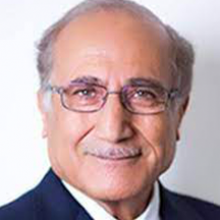You are here
Public dialogue crisis
Dec 10,2018 - Last updated at Dec 10,2018
When I give a lecture, I am often confronted during the Q&A session with the question: “Why did you change your mind on this issue after you left government?” Well, I have not found the proper answer, until last week.
I was surfing the Internet, searching for the year in which George Bernard Shaw won the Nobel Prize for Literature. Suddenly, my eye caught one of his famous quotes. It reads, “Progress is impossible without change, and those who cannot change their mind, cannot change anything.” I was so jubilant. At last, I found my salvation from the continuous crucifixion.
One of the funniest incidents I encountered was in 1987. I published an article in Arabic on the fiscal economics derived from the great Arab poet Abu Al Alaa Al Maarri. He spoke of the purpose of taxes, how taxes should be spent and analysed how government contracts could betray the redistributive effect of such taxes. To my surprise, there were more than 400 people in attendance. During the Q&A session, I was told that I should make a quick response after every batch of five questions. I heard the first five questions and demanded five more, and so on. When the number of questions and comments reached 40, I began to respond. None of these interventions was related to the subject matter of the lecture. They were all directed against the government, or citing other poets.
I began my response by telling them a story. Students who take the high school public exam in Jordan often worry about the topic which they will be asked to write a composition essay about in the English language test. So, they try to predict from the main events of the year what the topic might be. The most outstanding issue that year, 1984, was the discovery of oil and gas in Jordan. A student predicted that the subject of the English composition would be “what if Jordan becomes an oil-exporting country”. So he sought help, a composition was prepared and the student memorised it by heart. Upon opening the English question sheet, he found out that the topic of the composition was “describe your last trip to any tourist place in Jordan”. Stupefied by this unpleasant surprise, the student started weeping. When he was finally able to collect himself, he began writing “Me and my friend go as tourists to Dead Sea. Suddenly my friend asks me ‘what if Jordan becomes an oil-exporting country. I told him…’ and he resumed writing the composition he had prepared.
These days, when we attend lectures, each attendant comes with a grievance that he or she wants to unload. Even if the topic of the lecture is about growing tomatoes, it manages to drift into a survey of Jordan’s economic woes, the government’s inaction and the lack of trust between people and consecutive governments.
Such a state of dialogue cannot lend itself to the specificity of the topics at hand, nor does it evince any workable ideas to deal with specific issues. When an economic crisis grips the country, people lose their ability to communicate effectively.
Another quote from George Bernard Shaw to end this silly column with is: “Beware of false knowledge, it is more dangerous than ignorance.”













